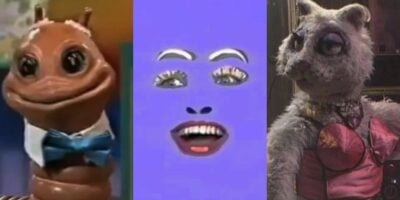Folk singer Lior met classical composer Nigel Westlake at a benefit show for Westlake’s Smugglers Of Light Foundation. Though the two come from different musical worlds, the meeting planted the seed for a beautiful collaboration. “You may be aware that Nigel tragically lost his son Eli a few years ago,” Lior says. “He and his wife Jan held an event to commemorate Eli’s passing, which was the launch of his charitable foundation.
The foundation itself is all about supporting and enriching indigenous artists. Nigel mentioned that his son Eli was a fan of my work, and invited me to perform at the event.” Lior closed his set that night with an ancient Hebrew hymn, which he sometimes likes to perform a cappella at the end of his shows. “That led to a friendship, which led to a musical collaboration, when we decided to do an orchestral arrangement of the hymn,” he explains.
When Lior and Westlake had finished their arrangement of the hymn, they presented it to the Sydney Symphony Orchestra to see if they would consider performing it as a short work – they were so taken with it that they came back with an offer to commission an all-new work, based on the ideas in the hymn. Lior found the prospect slightly daunting, but agreed to take it on. “Nigel and I started working on it, and the project grew into Compassion, which is a collection of orchestrations of ancient Hebrew and Arabic texts, all of which focus on the idea of compassion.” Over a period of several years, Lior and Westlake worked on Compassion, developing it into a 45-minute work for voice and orchestra.
For Lior as a singer song-writer, the notion of working with a composer of Westlake’s stature, in an unfamiliar musical vernacular, was an intimidating one. As a simple guy with a guitar, he feared he didn’t have the chops to make it in such a rigid and rigorous setting. Over the course of their collaboration, though, he and Westlake developed a strong musical respect for one another. “In the early days of exchanging ideas, I’d source lyrics and write melodies and send them to him, and he’d then start doing orchestrations,” he says. Neither had collaborated this way in the past, and it made for quite a steep learning curve. “Every so often we’d meet and talk about what we’d done, and then work through the music together. It was tentative at first, because I didn’t know how to appropriately give feedback.”
“If there was something that didn’t resonate with me, I didn’t feel like I was in the same compositional league as Nigel, so I was very hesitant to say anything,” Lior continues. “After a while, I came to a realisation – it occurred to me that I’d be standing up in front of people and performing this music, so I needed to believe and love every second. I realised I had to call it as it was, so I started to give feedback.” It was when he began to stand up for himself that the ideas really began to flow, and the collaboration really took shape. As for the tone of the interactions, Lior likes to say that he was ‘diplomatically blunt.’ “Nigel took it well, luckily,” he says with a laugh. “When he started giving me feedback on things I’d done, he’d write to me and in brackets, say ‘sorry to be so blunt – I think I learned that from you!’ If there’s one thing I had to pass on to him, it was that honesty and bluntness.”
Compassion is split into two parts. The first of these, Leaving The Western Shadows, sees Lior performing orchestral versions of his existing songs, while the second, Compassion, presents his and Westlake’s new composition. “The repertoire for Western Shadows is really broad,” Lior explains. “It features arrangements of new and old songs. I did a performance with the Adelaide Symphony Orchestra a few years ago, where I did orchestral versions of some of my old songs, like ‘This Old Love’, and we’re using a lot of those same arrangements this time around. I feel they’re still strong enough that they work without needing any major revision. In terms of that part of the show, most of the work went into arranging the newer songs that haven’t been performed with an orchestra before.”
As for Compassion itself, the piece delves into the idea of compassion as a force for liberation. “The Hebrew hymn that I like to perform delves into the idea of compassion, but links it to wisdom, and how compassion can truly free us,” he says. “The more compassionate we become, the freer we become. I’ve always loved that concept. I think that was a springboard to finding other ancient texts that talk about compassion in a really humanitarian way. It’s not a religious presentation, it’s more that it’s looking into these two ancient cultures, Judaism and Islam, and finding beautiful poetic messages about the way we treat each other. There are a lot of parallels and similarities to other religions as well.”
Looking to the future, I ask Lior what this orchestral interlude might mean for his own song writing. “It’s hard to say right now,” he tells me. “This could be a really fulfilling, isolated project or it could lead to other things. I’ve spent two years working on this and simultaneously working on music for a new album – it’s been really liberating in the sense that it’s a break from that cycle of writing, recording and touring an album. I love that, but I try and do other things that challenge me, things outside that. One will probably feed into the other, but it’s hard to say how. I’m in the middle of making the album, and if all goes well, it will be out in February next year.”
BY ALASDAIR DUNCAN
Lior & Westlake: Songs With Orchestra presents at Sydney Opera House on Friday September 6 and Saturday September 7. Visit the Sydney Symphony website for more information.

































